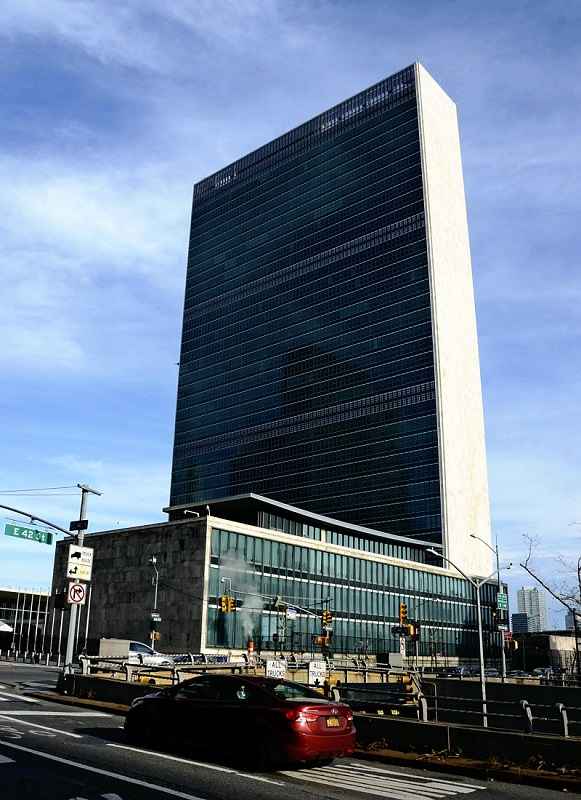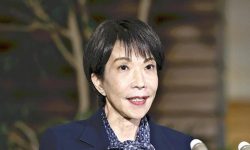
The U.N. headquarters is seen in New York in December 2020.
15:04 JST, August 1, 2022
NEW YORK — Participating parties were set to gather Monday in New York for a review conference of the Treaty on the Nonproliferation of Nuclear Weapons (NPT), but in light of current world circumstances, it will likely prove difficult for the parties to reach an agreement toward nuclear disarmament.
Signatories to the treaty will discuss ways to further nuclear disarmament and nonproliferation against an international backdrop in which Russia has invaded Ukraine and threatened to use nuclear weapons, and China continues to grow its nuclear arsenal.
The conference, to be held at the U.N. headquarters, is held quinquennially to check progress on the treaty’s implementation and agreements reached during past gatherings, and to set a direction for future conferences. The 10th review conference had initially been scheduled for 2020, but was postponed due to the novel coronavirus pandemic..
During the conference, which will last through Aug. 26, the parties will hold discussions on three topics — nuclear disarmament, nuclear nonproliferation and the peaceful use of nuclear energy — with the aim of adopting a final document. According to the United Nations, as of July 25, representatives of 116 countries and regions were scheduled to attend the general debate, in which heads of state and government and ministers will deliver speeches from Monday to Thursday.
Prime Minister Fumio Kishida arrived in New York on Sunday night to attend the conference — the first Japanese premier to do so.
The previous conference in 2015 fell into disarray over the establishment of a nuclear-free zone in the Middle East and failed to adopt a final document.
Recently, the United States and Russia, both nuclear powers, have been increasingly at odds over the situation in Ukraine.
The NPT aims to reduce the risk of nuclear war, and entered into force in 1970 during the Cold War. Some 191 countries and regions are parties to the treaty. It limits the possession of nuclear weapons to five countries — Britain, China, France, Russia and the United States — and imposes concomitant obligations, such as preventing the proliferation of nuclear weapons to other countries and conducting negotiations on nuclear disarmament. The treaty allows nonnuclear weapon states to use nuclear energy for peaceful purposes, while prohibiting them from producing or acquiring nuclear weapons.
Top Articles in World
-

Israeli Ambassador to Japan Speaks about Japan’s Role in the Reconstruction of Gaza
-

Videos Plagiarized, Reposted with False Subtitles Claiming ‘Ryukyu Belongs to China’; Anti-China False Information Also Posted in Japan
-

North Korea Possibly Launches Ballistic Missile
-

Chinese Embassy in Japan Reiterates Call for Chinese People to Refrain from Traveling to Japan; Call Comes in Wake of ¥400 Mil. Robbery
-

Pentagon Foresees ‘More Limited’ Role in Deterring North Korea
JN ACCESS RANKING
-

Japan PM Takaichi’s Cabinet Resigns en Masse
-

Japan Institute to Use Domestic Commercial Optical Lattice Clock to Set Japan Standard Time
-

Israeli Ambassador to Japan Speaks about Japan’s Role in the Reconstruction of Gaza
-

Man Infected with Measles Reportedly Dined at Restaurant in Tokyo Station
-

Man Infected with Measles May Have Come in Contact with Many People in Tokyo, Went to Store, Restaurant Around When Symptoms Emerged
























